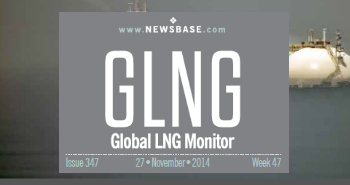Turkish power producer Karpowership offers to cut controversial South Africa contract to 5 years from 20

Turkish power producer Karpowership has offered to reduce its original contract period for providing emergency power to South Africa with its floating gas-powered plants from 20 to five years. However, the shorter contract also suggests an increased price tag, Daily Maverick reports.
The offer comes from Karpowership chief commercial officer (CCO) Zeynep Harezi, who spoke with eNCA journalist Annika Larsen in an interview on August 9. Harezi said that her company was ready to dispatch five floating powerships to South Africa and to start generating electricity within “90 days” or less.
“We are ready to come for only five years [instead of 20],” she said. However, the CCO was careful to add that her Istanbul-based company did not rule out an extension to the proposed contract after five years, writes Daily Maverick.
South Africa’s push to use Karpowership’s plants to provide much-needed emergency electricity has regained momentum. Most recently, the state-run power utility Eskom has extended the Turkish company’s right to connect to South Africa’s power grid until the end of 2023, bne Intellinews reported.
The access is for Karpowership’s three projects announced in 2021 with a total capacity of 1,220 MW. Harezi’s statement follows a heated and lengthy controversy over the merits of entering into a protracted and costly energy deal with potentially damaging environmental impacts.
While Karpowership appears to be close to clearing the environmental concerns, the issue of its two-decade contract length has caused apprehension among the general public, energy experts and non-government organisations over the cost of electricity it will provide.
The exact cost of the 20-year contract remains undisclosed, says Daily Maverick, although the Council for Scientific and Industrial Research (CSIR) has previously estimated that it could be around ZAR228bn (about $15bn). However, the price of the liquified natural gas (LNG) that the powerships use has surged since then, following Russia’s invasion of Ukraine in February 2022.
Responding to suggestions from Larsen that the price tag of that deal could exceed ZAR300bn, Harezi said that Karpowership was now offering a five-year deal that would cost “less than ZAR15bn” per year. This was less than half of the roughly ZAR35bn that Eskom spent on emergency diesel to power its open cycle gas turbines during peak electricity demand, she noted.
Harezi is the first to confirm that Karpowership was ready to reduce the contract timeframe to a quarter of its original length. “Whatever is the best proposal we can put forward for five years, we will. And if that is saving South Africa billions of rand [in diesel] costs, I think it is an offer to be considered,” she said.
Harezi also explained that the LNG would account for 60–70% of electricity bought from Karpowership, while the other portion would be fixed costs related to the ships themselves. “We are more economic than almost all land-based options as well, we’re just giving this 5-year option to ease decision-making,” she added.
However, Chris Yelland, energy analyst and managing director of EE Business Intelligence, warned that gas prices were subject to significant fluctuations based on the US dollar price for LNG and the dollar/rand exchange rate.
Yelland told Daily Maverick that if the Karpowership tariff for a revised five-year contract were to rise, a new government procurement process would be required to allow other power bidders an opportunity to revise their initial offers and contract terms.
“Clearly, Karpowership has not offered anything because they have not been [officially] approached by anyone in government or the IPP [Independent Power Procurement division of the Department of Mineral Resources and Energy],” Yelland said.
Harezi acknowledged that she had never met Mineral Resources and Energy Minister Gwede Mantashe, nor been approached by South African government representatives to reduce the contract term to five years.
However, Harezi told Larsen that her company held a meeting with Public Enterprises Minister Pravin Gordhan (calling him “that lovely gentleman”) about a month ago, along with representatives of Eskom and the Transnet National Ports Authority for an “open discussion”.
There had never been any “political aspects”, she said in response to Larsen’s questions about the black economic empowerment (BEE) stipulations of the emergency power procurement process. However, she said Karpowership had met a prospective South African BEE “gentleman” partner as far back as 2016.
South Africa was an “important project”, but not the “only” commercial opportunity for Karpowership, she said, as quoted by Daily Maverick.



Follow us online